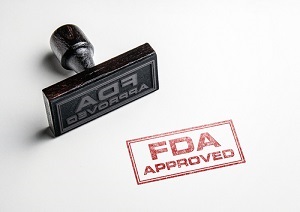FDA’s Approval of Alzheimer’s Drug Highlights Need for Whistleblowers

The Food and Drug Administration (FDA) is supposed to protect American consumers from unscrupulous private actors—charlatans, snake-oil salesmen, and the like—seeking to profit by selling unproven medical “cures,” treatments, and devices to the public. Emerging during the era of the robber barons as part of Theodore Roosevelt’s efforts to “civilize capitalism,” the FDA has prevented untold harm to individuals by establishing safety and efficacy standards for food and drug products that enter the stream of American commerce. It is an essential regulatory agency, trying to accomplish herculean tasks with limited resources. But as recent events suggest, it is also subject to regulatory capture by the private corporations it is meant to regulate. Particularly with respect to the pharmaceutical and medical device industries, whistleblowers are needed to help close the gap in government oversight.
FDA Approval of Alzheimer’s Drug Raises Questions
As reported in STAT, the FDA’s approval in early June 2021 on an accelerated basis of Biogen’s drug Aduhelm for all Alzheimer’s patients—despite little evidence that it is actually effective—raises serious concerns about whether the approval was the result of back-channel dealings between Biogen and FDA officials. Based on government documents and interviews with former Biogen and FDA employees, STAT reveals that “some FDA officials were far more closely aligned with the company than previously disclosed.” Troublingly, “[i]nstead of being an independent regulator tasked with evaluating Aduhelm objectively, the FDA became Biogen’s partner, working together to the get the drug to market.”
Specifically, STAT points to an “off the books” meeting in May 2019 between Billy Dunn, the FDA’s top regulator of Alzheimer’s drugs, and Al Sandrock, Biogen’s chief scientist, at which Sandrock let Dunn know that Aduhelm “might actually be slowing the progression of Alzheimer’s” and sought Dunn’s help in getting it approved. That meeting appears to have led to a secret push by some FDA officials to move Aduhelm through the drug approval process on an accelerated basis, despite objections by a panel of independent experts that the drug was not effective and should be rejected.
After Aduhelm was approved for use in all Alzheimer’s patients, three experts from the independent panel resigned in protest. Just a week ago, on July 8, the FDA suddenly narrowed Aduhelm’s approved use to only patients with milder forms of Alzheimer’s. STAT reports that “such a label change so soon after approval is highly unusual.” Congress has opened two separate investigations to examine the FDA’s approval process, concerned that Biogen’s price-tag for the controversial drug, at $56,000 per year per patient, could bankrupt the Medicare program.
Fraud-on-the-FDA is a Viable False Claims Act Theory
The full story of how Aduhelm received FDA approval is still unfolding. Nevertheless, it is worth noting that, in some jurisdictions, pharmaceutical companies and medical device manufacturers have been held liable under the False Claims Act (FCA) for perpetrating fraud on the FDA. Recently, the Court of Appeals for the Ninth Circuit reversed the dismissal of an FCA claim against Medtronic based on this approach.
In that case, The Dan Abrams Co. LLC v. Medtronic, Inc., No. 19-56377, 2021 U.S. App. LEXIS 9637 (9th Cir. Apr. 2, 2021), a whistleblower alleged that Medtronic defrauded the FDA into granting approval for a device used in spinal fusion surgery by making false representations in its application about how the device was intended to be used. The Court held that, in part because the representations related to safety, Medtronic’s alleged fraud went “to the very essence of the bargain” and could proceed. Courts have reached a similar conclusion when pharmaceutical companies lie to the FDA about their drug manufacturing processes or clinical trial results.
Whistleblowers Can Help Close the Regulatory Gap
The FDA has a storied history of protecting American consumers from dangerous drugs, medical devices, and other products. But it is also a beleaguered agency that often comes up short in meeting its regulatory responsibilities. The FDA’s surprising approval (and then partial reversal) of Aduhlem’s indication appears to be the latest chapter in this saga. Whistleblowers can help close this regulatory gap by filing a complaint under the False Claims Act to hold private corporations responsible for defrauding government programs, even when government agencies fail to detect or take actions to correct fraud. If you are a whistleblower with information about fraud on the FDA, please contact a member of the Constantine Cannon whistleblower team for a confidential consultation.
Read More:
- False Claims Act
- Healthcare & Pharmaceutical Fraud
- Pharmaceutical Fraud
- Our other posts on FDA Fraud
- Whistleblower Home Page
Tagged in: FCA Federal, FDA Fraud, Healthcare Fraud, Importance of Whistleblowers, Lack of Medical Necessity, Medicare, Pharma Fraud,